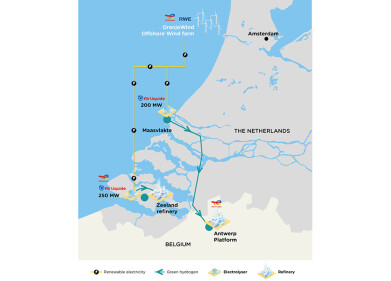Green energy
Can Lightning Light-Up Our Light Bulbs?
Nov 18 2014
Growing concern about the problem of climate change has led countries the world over to seek new avenues of energy production. These have taken the form of such outlandish and innovative ideas as spray on solar panelling and gigantic tidal lagoons, designed to pursue clean, renewable forms of energy.
If scientists are thinking so far out of the box in order to reach a solution, why not attempt to harness the natural electricity right before our eyes? Around 250 years ago, Benjamin Franklin conducted some of the first experiments concerning lightning and electricity using only a kite and a key. Today, with our vastly-improved technology, is it feasible – or even desirable – to harness such power?
To answer the second point first: it most certainly is desirable. A single bolt of lightning can contain as much as 5 billion joules of energy, which is enough to light, heat and power a single home for a month. Or alternatively, the energy involved in the happenings of a thunderstorm is equivalent to that which goes into a nuclear bomb. So yes, harnessing such awesome power would indeed be beneficial.
Feasibility
The problems with harvesting energy from lightning are threefold.
1) Unreliability
Thunderstorms and lightning strikes are, by their very nature, unpredictable, sporadic and random. We can rarely predict when and where lightning will strike with much accuracy or anticipation. Our energy needs, on the other hand, are very constant. We require energy all day, every day. Marrying these two juxtapositions together is no easy matter.
2) Dispersion
When lightning strikes, it quickly uses up the energy and disperses it around, meaning that by the time it has reached Earth, only a fraction of that awesome power remains. Therefore, if we were to build a tower capable of capturing the electricity, it would not be capturing the full amount.
3) Capability
The point raised in number two may well be moot, since capturing the electricity in the first place would prove to be incredibly difficult. Because the strike takes place so quickly, it is nigh on impossible to capture the electricity in one fell swoop, store it and successfully convert it to an alternating current, without blowing the system to kingdom come.
Despite these obstacles, research has been undertaken into the idea … although it has been ultimately unsuccessful to date. In 2007, Alternative Energy Holdings used a system which included a capacitor attached to grounding wires and a tall tower. After repeated failed experiments, they gave up, but talked about monetary problems, rather than insurmountable logistical ones. The CEO Donald Gillespie said, “Quite frankly, we just couldn't make it work... Given enough time and money, you could probably scale this thing up. It's not black magic - it's truly math and science, and it could happen.”
So, can lightning light-up our light bulbs? Possibly yes, but not for the foreseeable future.
Events
May 11 2025 Vienna, Austria
May 18 2025 Algiers, Algeria
23rd International Water Management Exhibition
May 20 2025 Prague, Czech Republic
Singapore International Water Week Spotlight 2025
Jun 23 2025 Singapore
Jun 25 2025 Sao Paulo, Brasil














